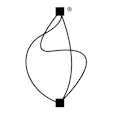timeline shift
Timeline Shift is the title of the fourth edition of Re:humanism Art Prize, which since 2018 has been dedicated to exploring the relationship between art and artificial intelligence. This edition is a reflection on time, often experienced from a Western perspective and oriented towards the future and productivity. Hence, an openness to other cultural and ritual forms is vital. An invitation to recover, in technologies as in everyday life, a synchronicity capable of reconnecting everyone's experience with the world around them, living species, even artificial entities and ourselves. Timeline Shift is an attempt to go beyond a "wrong timeline", generating the possibility to act on the world and on technological progress, similarly to a collective spell.
Today, new generative models defined as large language models (LLM) allow greater accessibility of these technologies but also greater opacity. While anyone can use natural language (prompt) to obtain content with a high degree of accuracy, on the other hand these models need enormous quantities of data which also need to be classified and organized to obtain satisfactory results. The theme of the archive, already central in the artistic discourse, becomes even more so concerning these tools. Decisions about which data is preserved and which is discarded are highly dependent on human intervention, and the risk of repercussions exponentially escalates with AI.
In this context, the art world finds itself at the center of this algorithmic revolution: the interfaces of generative models, while making the creation of content more accessible, reduce the transparency and awareness of the processes that generate them. The debate focuses on the concept of authorship and its recognition, while concerns emerge about how artificial intelligence reproduces stereotypes or intrinsic limits of statistical calculation, rather than generating genuine creativity.
In response, many artists are exploring new workflows, seeking sustainable solutions that transcend the recursive nature of algorithms. Among the topics addressed, discourses on gender, decolonization, ritual and ancestral visions, intertextuality and synchronicity emerge, as well as speculative perspectives that aim to outline new cultural and social horizons.
This edition aims to foster reflections on how to rethink value systems now at the limit of their usefulness, inviting artists to imagine and experiment with tools that can overcome the current condition. The goal is to create visions capable of tracing trajectories towards a more inclusive, ethical and sustainable future.
